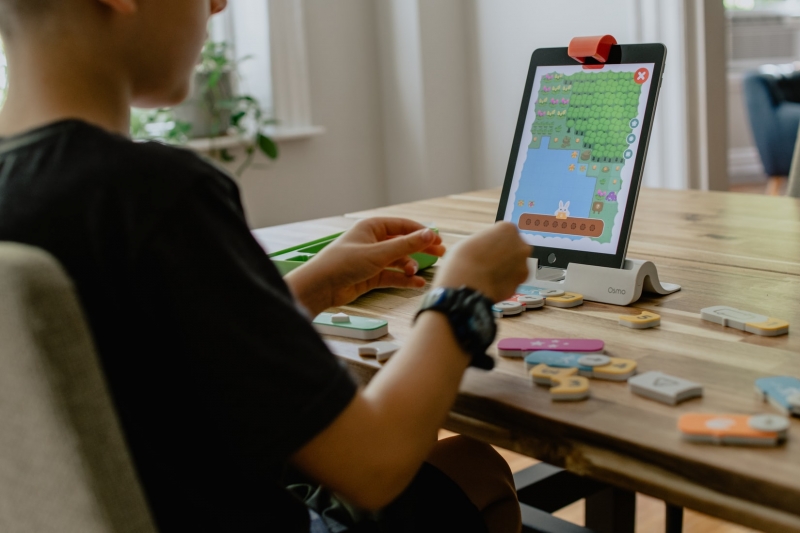Remote learning from 5 January 2021
6 January 2021

Further to the Government announcement yesterday evening which imposes another national lockdown, the immediate focus has shifted to delivering remote learning to all pupils that are required to stay at home.
Schools have been asked to publish information about their remote education provision on the school's website by 25 January 2021. We have summarised the legal powers involved and provided links to the most recent guidance, template documents and training materials available for schools at the time of writing.
Legal powers
Over the coming days we will see whether the Secretary of State uses the power available under the Coronavirus Act 2020 to publish a temporary closure order and whether any such direction would apply in full to both academies and independent schools.
The Coronavirus Act 2020 also gives the Secretary of State the power to issue a temporary continuity direction to require a body or institution to take steps specified in the direction in connection with the provision of education.
Requirement to provide remote education
The Coronavirus Act 2020 Provision of Remote Education (England) Temporary Continuity Direction ("the Direction") states that where there is a national restriction requiring pupils to say at home, schools are legally obliged to provide immediate access to remote education. This Direction came into force on 22 October 2020 and is effective until the end of the 2020/21 Academic Year, unless it is revoked earlier.
The gov.uk explanatory note (available here[1]) clarifies that the Direction applies to "community schools, community special schools, foundation schools, foundation special schools, voluntary schools, pupil referral units, non-maintained special schools, Academy schools and alternative provision Academies and further specifies that it applies to fee-paying independent schools, but only in respect of pupils whose places at those schools are wholly paid for out of public funds".
Independent schools will otherwise need to consider their contractual arrangements with parents of pupils and their ability to vary the delivery of educational services under the Parent/School contract.
Quality of remote education - expectations
Schools are required to have regard to the guidance on the quality of remote education to be delivered, which is currently still contained in the "Guidance for full opening: schools" (due to be updated, so do refer to the most up to date version available[2]):
"In developing their remote education, we expect schools to:
- teach a planned and well-sequenced curriculum so that knowledge and skills are built incrementally, with a good level of clarity about what is intended to be taught and practised in each subject
- use a curriculum sequence that allows access to high-quality online and offline resources and teaching videos and that is linked to the school’s curriculum expectations
- give access to high quality remote education resources
- select the online tools that will be consistently used across the school in order to allow interaction, assessment and feedback and make sure staff are trained in their use
- provide printed resources, such as textbooks and workbooks, for pupils who do not have suitable online access
- recognise that younger pupils and some pupils with SEND may not be able to access remote education without adult support and so schools should work with families to deliver a broad and ambitious curriculum - for pupils with SEND, their teachers are best placed to know how to meet their needs."
The guidance goes on to further clarify the expectations when teaching remotely:
- "set assignments so that pupils have meaningful and ambitious work each day in a number of different subjects
- set work that is of equivalent length to the core teaching pupils would receive in school, and as a minimum:
- primary: 3 hours a day, on average, across the school cohort
- secondary: 4 hours a day, with more for pupils working towards formal qualifications this year
- provide frequent, clear explanations of new content, delivered by a teacher or through high-quality curriculum resources or videos
- have systems for checking, at least weekly, whether pupils are engaging with their work, and inform parents immediately where engagement is a concern
- gauge how well pupils are progressing through the curriculum using questions and other suitable tasks, and provide feedback, at least weekly, using digitally facilitated or whole-class feedback where appropriate
- enable teachers to adjust the pace or difficulty of what is being taught in response to questions or assessments, including, where necessary, revising material or simplifying explanations to ensure pupils’ understanding."
The above expectations should be considered in context to take account of the pupils' age, stage of education and development and any SEND needs. It is suggested that schools avoid over-reliance on long-term projects or internet research tasks.
Publish your remote provision arrangements
Schools have been asked to publish information about their remote education provision on the school's website by 25 January 2021. The DfE has produced an optional template that can be used and tailored to meet this expectation[3].
Remote education good practice guidance
The Remote education good practice guidance is available here[4] and covers:
- ensuring access to remote provision;
- what matters most;
- effective remote teaching provision; and
- finding solutions in remote provision.
School-led webinars have also been used to share best practice and can be accessed here[5].
Next steps
Any operational changes take time to implement and the first few days of remote learning may not look or feel the way you would want them to. It is advisable to use your existing policies on remote learning and develop (or update) a suitable document to publish on the website so that members of your school community know what to expect and who to contact if there are concerns. Clear communication with staff and parents will be critical at this time.
For further information or advice, please contact Vicky Wilson or your usual Wilsons contact.
[1]https://assets.publishing.service.gov.uk/government/uploads/system/uploads/attachment_data/file/923539/Remote_Education_Temporary_Continuity_Direction_-__Explanatory_Note.pdf
[2] https://www.gov.uk/government/publications/actions-for-schools-during-the-coronavirus-outbreak/guidance-for-full-opening-schools#section-5-contingency-planning-for-outbreaks
[3] https://www.gov.uk/government/publications/providing-remote-education-information-to-parents-template



